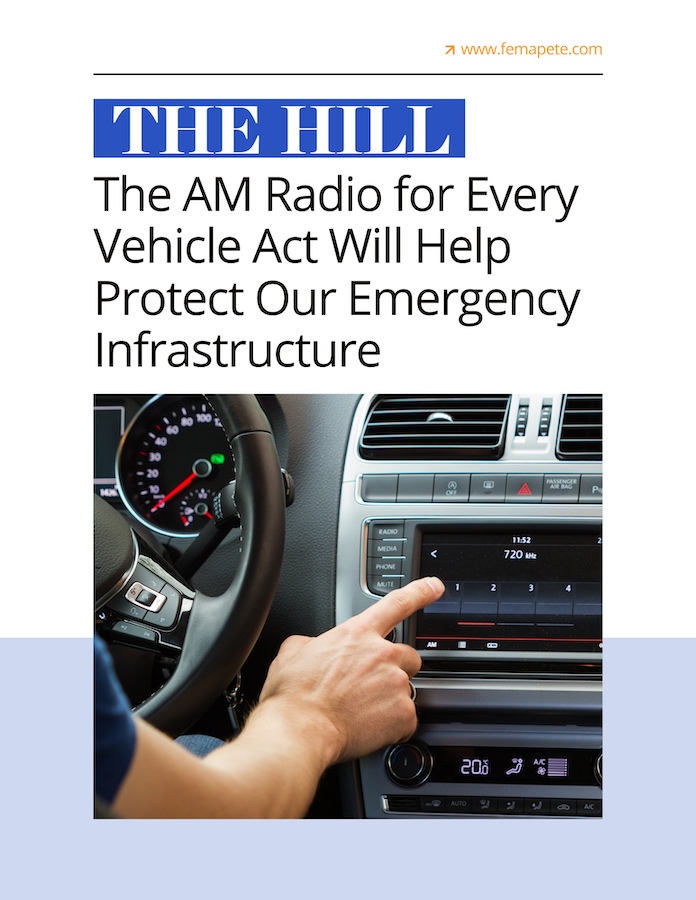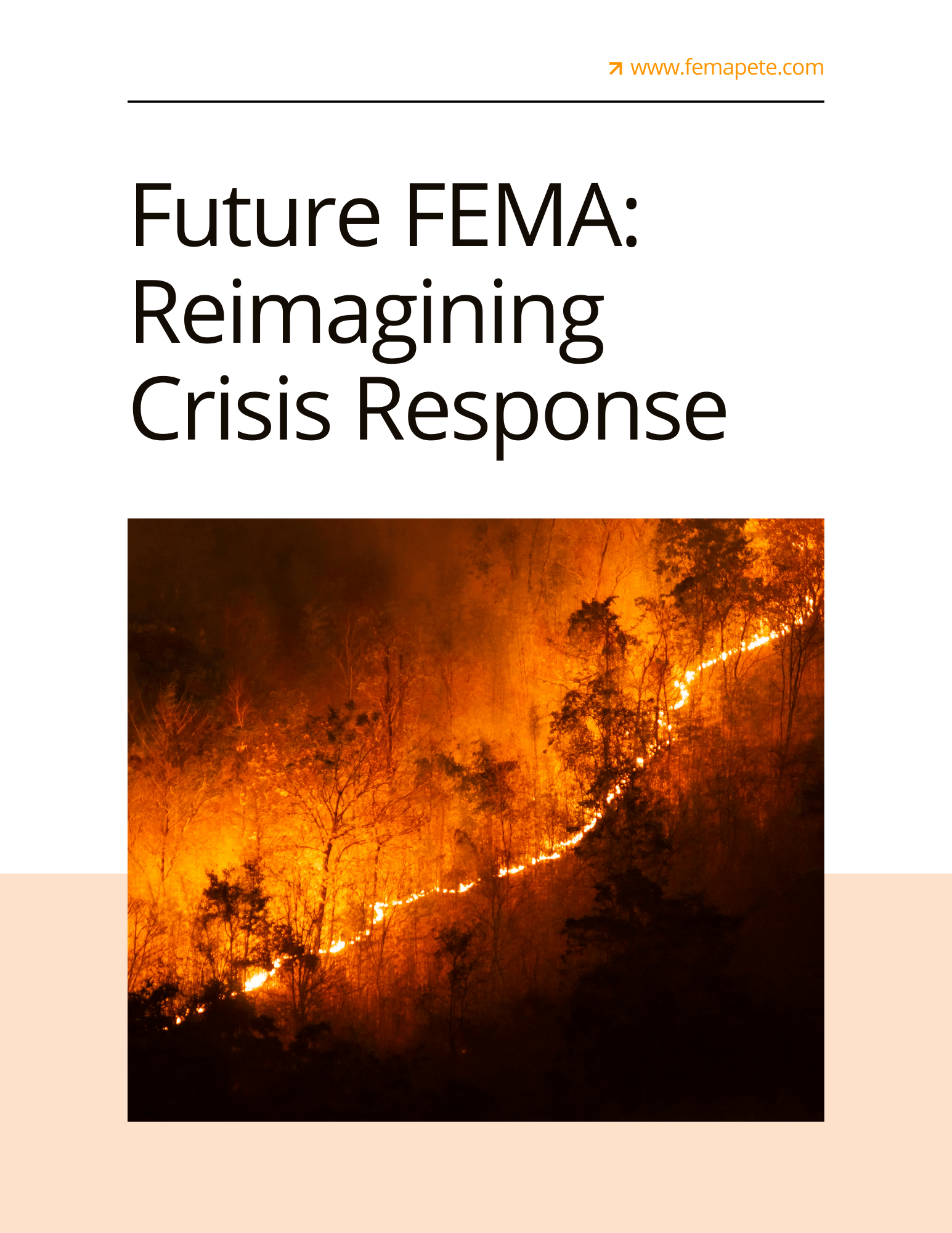
Blog
Stay informed—subscribe for valuable insights, expert articles, and leadership strategies
CNN Opinion: Our disaster responders are exhausted. This puts Americans at risk
Emergency management professionals are the backbone of disaster response, working tirelessly to help communities recover from hurricanes, wildfires, floods, and more. However, increasing demands and chronic burnout threaten their ability to respond effectively.
The AM Radio for Every Vehicle Act Will Help Protect Our Emergency Infrastructure
Losing cell service for significant periods does not just present work and scheduling inconveniences. It also poses grave threats to public safety. On Feb. 22, millions of Americans lost complete access to their cellular reception thanks to signal blackouts that crossed the entire country. This episode, while unfortunate, demonstrates just how crucial it is for Congress to begin shoring up the United States’ emergency infrastructure.
The Challenges of Mitigation Money: How to Get off the Starting Line and Fund Your Mitigation Project
Accessing those billions of dollars can be a complicated process. With all this available funding, how can you access it, and spend it in a timely manner on projects that are meaningful and reduce the future impact of disasters to your community?
In Desperate Situations, Give ‘Crazy’ a Try (Opinion)
During our early response, I realized that our ability to generate new innovative ideas to counter the lack of critical resources was fading. In some cases, it seemed like the harder we squeezed, the less and less “juice” we were able to produce. The struggle to generate novel ideas to overcome shortages ran parallel with our dwindling and hard-to-regenerate human resources.
Future FEMA: Reimagining Crisis Response
FEMA’s role dramatically changed after the COVID-19 pandemic. Congress had realized that the Nation had multiple and disjointed ways it responded to a variety of major crises. FEMA traditionally managed natural disasters, the Department of Health and Human Services managed public health emergencies, the Department of Agriculture managed food emergencies and the Department of Energy managed energy emergencies. The list kept going; there were as many different disaster response plans as there were governmental agencies.
A Case For Emergency Alerts From Space
Each year, wildfires, hurricanes, flooding, winter storms, tornadoes, and even non-disaster events like power outages expose some of the fault lines with our terrestrial-based emergency alert system. Without a functional network of ground-based cellular towers, fiber, and microwaves, emergency alerts can’t get to the people who need them the most—those in the path of an oncoming disaster.







